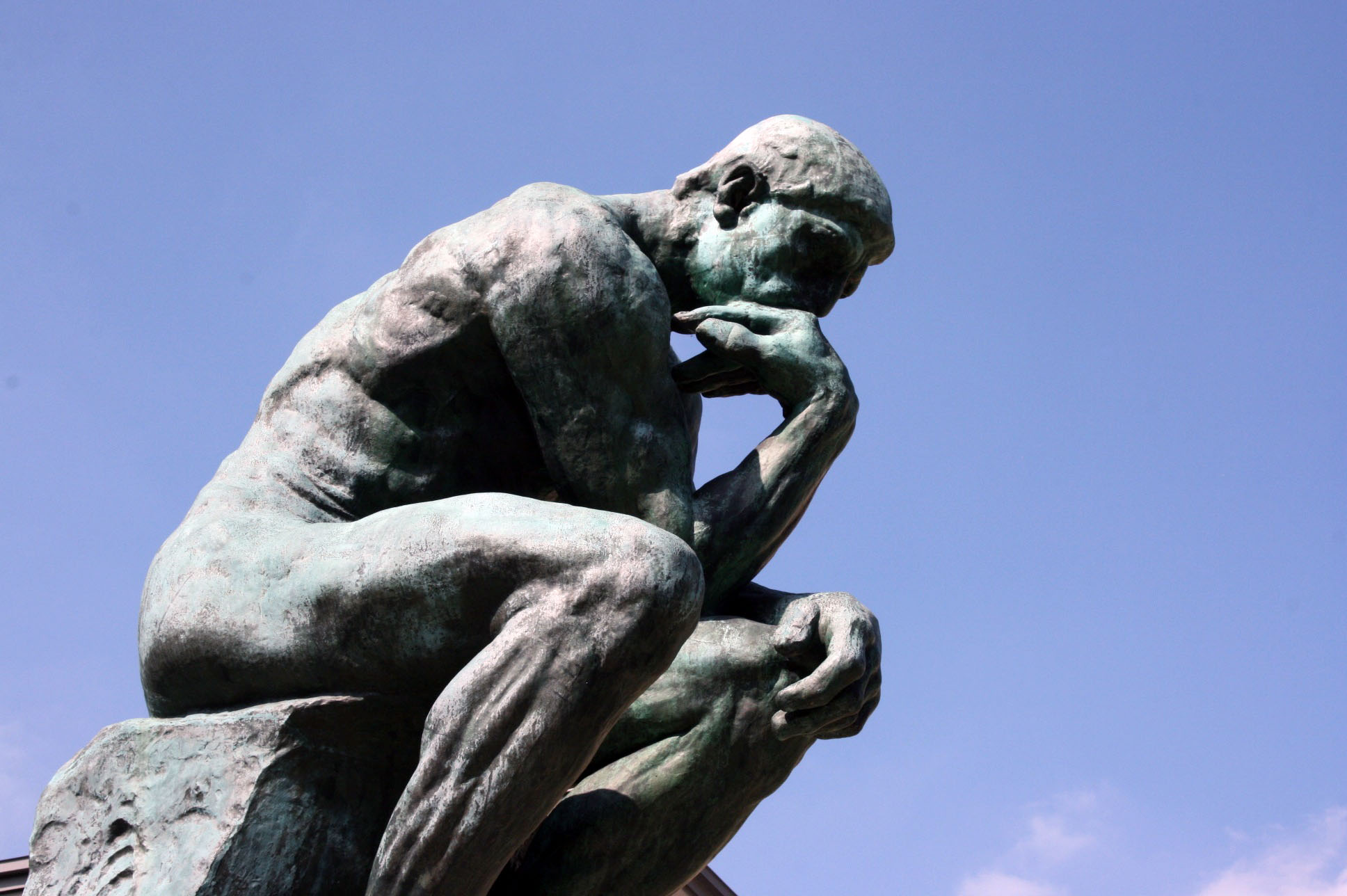“How much time do you schedule each week just for thinking?”
Whenever I ask someone that question, I’ll invariably receive a hard look and a furrowed brow followed by a reply along the lines of,
“Get serious. Who has time to sit around and think? Do you have any idea what my day is like?”
If that response weren’t so sad, it would actually be funny. In effect, it’s saying that tending to the mishmash of crises, minutia, and trivia takes precedence over focused thought!
Our Ability to Think Is Our Greatest Gift
Our ability to think is what makes us human. It’s the one thing that separates us from all the other species on our planet, but it doesn’t do us much good if all we do is collect facts, work harder, and read faster. Information is actually a scourge unless we take the time to distill it down into something manageable, useful and applicable … and that doesn’t happen in a state of mindless busyness.
How often do you set aside twenty or thirty minutes for deep thinking? If not, why not? And if not … what does that suggest?
Meaningful achievement takes time. One of the greatest afflictions of our fast-paced, always-on, multitasking world is that we often forget to take the time to stop and think, to synthesize and reflect on all the information we encounter.
“Five percent of the people think; ten percent of the people think they think, and the other eighty-five percent would rather die than think.” ~ Thomas A. Edison
Edison’s estimates may be harsh, but the point is well taken. Much of what we do is driven by our subconscious mind; we perform on automatic pilot. Focused, deliberate thinking requires conscious effort. It’s not easy.
Are You Managing Your Life or Determining Your Life?
Stephen Covey shares a wonderful example of the rich rewards for taking the time to think and evaluate our intended purpose in his classic work, The 7 Habits of Highly Effective People.
Way back in the 1980s–long before the Internet, email, and instant messaging, Covey was teaching a yearlong leadership course to a group of senior business executives. At the end of the course, one of the attendees approached him to share this story.
You know, Stephen, in the second month of the program, you highlighted the profound difference between leadership and management, and it really struck a chord with me. As the president of an oil company, I decided to do some soul-searching, and it didn’t take long before I had to admit that I really wasn’t into leadership; I was into management.
I decided I wanted to be into leadership, and I could only do so by withdrawing from management. I realized that I had been spending most of my time and energy wrestling with the endless number of daily problems and challenges that constantly cropped up.
To my surprise, this was far more difficult than I had first suspected. I went through withdrawal pains—not unlike an addict. What I began to miss was the daily sense of accomplishment and the camaraderie with my executive team in solving pressing problems and logistics.
But I knew that the true role of leadership was visionary. True leadership meant taking the time for deep analysis of problems, charting the corporate culture, and pursuing new opportunities … none of which could be accomplished at the frenetic pace of crisis management.
But the fallout from my withdrawal was wider spread than just myself. My executive team also felt the effects. They missed the easy accessibility they had to my time and energy. No longer could they call on me to help solve their problems. They had to redefine their own visions and goals.
Although my decision was difficult, I was absolutely certain that providing vision and leadership would pay huge dividends, and it did. In less than a year, our whole business has dramatically improved. We were on top of our corporate mission statement; we were more in line with our environment, our revenues doubled, and our profits quadrupled.
As Covey concluded, whether we’re examining our role as parents, managers, or spouses, all too often, we’re living from one small crisis to the next.
Why Do We Choose “Thoughtless” Busyness?
Because it’s easy and it feels good. If truth be told, being mindlessly busy is far easier than deliberate reflection and focused thought, and what’s more, jumping from task to task can be fun. We crave the dopamine hit of new messages and their potential reward. We welcome any and all distractions … anything to keep us from facing our more challenging tasks.
Being busy is a form of laziness. ~Tim Ferriss

BusyMan is not unlike Bugs Bunny’s Tasmanian Devil.
He’s a whirling dervish of activity, but he’s incapable of strategic thought. He lives in a primitive world of quick questions and shallow answers. He confuses urgency and bustle with productivity. His harried, dysfunctional world is invariably tactical rather than strategic. He’s wildly active but accomplishes little … only he doesn’t know it. His opinions are trite, superficial, and unhelpful. Investing time to stop and think would be inconceivable; after all, when you’re busy, who’s got time to sit around and think?
But here’s the thing; whether we’re fulfilling our role as parents, teachers, spouses, students, managers, or entry-level employees, thinking is what makes our contribution valuable; it’s what makes us purposeful.
Thinking is our only defence against the dozens of biases and heuristics that can trip us up and lead to impulsive decisions, irrational conclusions and clouded judgment. Thinking is our only guard against being fooled or conned; it’s how we discern truth from lies. It’s the only way we can ever figure things out or truly “know” what we’re talking about
Scheduling thinking time doesn’t have to mean sitting next to a window and staring off into space. You might find that you do your best thinking while working in the garden, going for a swim, or driving golf balls. You may even train yourself to do your best thinking while sitting in traffic! (That would be huge) Personally, if I tried to sit in the lotus position and meditate, I’d go stark raving mad. I do my best thinking while walking or jogging.
Find what works best for you and regularly take the time to enjoy one of humankind’s greatest gifts … your unlimited capacity to think, ponder, and “marinate” in the joy of solitude.
When it comes to managing our time, focus and attention, we either take control, or we cede control … it’s one or the other, and too many of us just don’t realize we have that choice.



